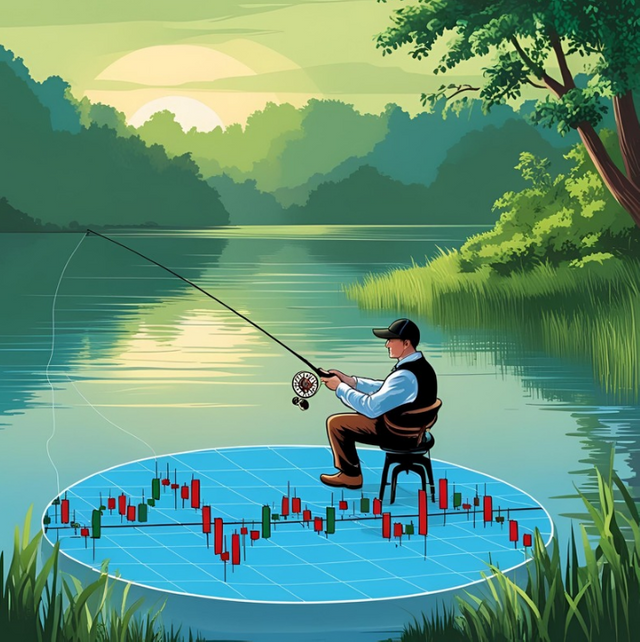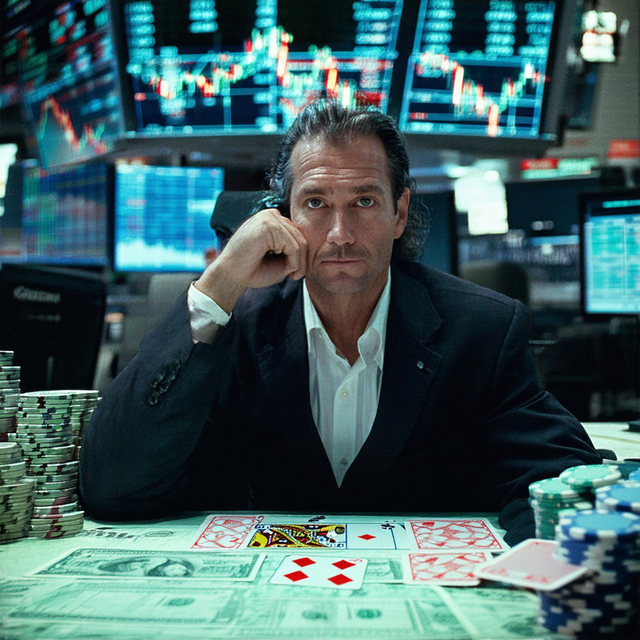"The Trader’s Mind: Unlocking the Psychological Keys to Market Success"
In the high-stakes world of trading, the true battleground lies not on the screen but within the trader’s mind. Success in trading hinges less on secret formulas and more on the psychological resilience to navigate uncertainty, manage emotions, and make disciplined decisions. By understanding and cultivating these qualities, you’ll be better equipped to face the markets with confidence, adaptability, and a clear, focused mindset.
Trader psychology
Besides knowledge of market analysis—whether technical or fundamental—psychology and risk management form the three pillars of trading. Most traders begin by studying technical and fundamental analysis, only turning to risk management and psychology after facing significant failures or liquidation. This pattern emerges because many newcomers believe there’s a secret formula for market success, assuming that mastering hidden techniques will lead to quick riches.
Our focus here is trader psychology, and even reading dozens of books won’t fully prepare a trader’s mind for profitable speculation. Human instincts aren’t naturally aligned with the market’s demands. As we age, we crave stability, while the market thrives on constant, unpredictable change. We can try to adapt, but no matter how flexible we become, fully keeping pace with the market’s evolution is impossible.
Yet some individuals are naturally better equipped psychologically for trading. For others, mental resilience can be developed. This article outlines the essential psychological qualities for trading success: hardness, patience, calmness, concentration, self-reliance, courage, prudence, controlling emotions, and having foresight. These traits must work in harmony, and traders should strive to master them. Use this as a starting point to identify your strengths and areas for growth in your psychological approach to trading.
1- Hardness
Success in trading has no shortcuts—it’s grueling work, and the mentally lazy need not apply. The average person avoids effort, preferring only what’s entertaining. But easy money is typically borrowed, rarely earned, and almost never kept.
The difference between those who act and those who merely dream lies in determination, not opportunity. “Luck” is an overused excuse. Successful traders burn with an unrelenting drive to improve their situation—a fierce hunger that pushes them forward. Market seeks individuals dissatisfied with the status quo, eager to stoke their ambition and pursue their goals relentlessly. This mental toughness is a cornerstone of trader psychology.
2- Patience
Everyone dreams of getting rich fast, but patience is a non-negotiable ingredient for market success. Timing demands strong nerves: waiting for opportunities to emerge, watching them mature, and holding out for meaningful profits. The best trades reward those who wait. You need resilience, not jittery “nerves”—the ability to endure losses and persist through tough times without losing your cool.
Trading can be monotonous, and that’s something to embrace. Consistency thrives on routine, even boredom. You’ll also need to tolerate discomfort and frustration. As the saying goes, “A rolling stone is worth two in the bush,” and in trading, staying power often trumps impulsive action—a key psychological trait.
3- Calmness
Self-control is half the battle—preventing overtrading and maintaining a steady, calm demeanor. Assess every situation objectively, free from emotional sway, and trade without stress or strain. As Dickson G. Watts put it, “The mind is clear; the judgment trustworthy.”
No amount of money is worth your peace. You can’t control the market, only adapt to it. Ignorance might feel blissful, but it’s costly. With money to risk and time to invest, you can stay calm, cool, and collected. Build a trading personality that operates with icy precision, saving your energy for critical moments. Worry, is the oldest child of fear, poisons positivity and clouds judgment with doubts like “what if”, “but”, “I’m unlucky”, “I can’t.” until notes have been sounded. worry makes one sick bodily and inert mentally. Thuse, maintain a positive psychological outlook, and don’t pamper your ego by theorizing and making silly predictions.
Eliminate anxiety! Over-anxiety upsets the equilibrium of a trader more than anything else. Anxiety to making a record, avoiding losses, or securing a certain profit for the period, will greatly warp the judgment. In another world, trading is like laying eggs, if the hen is not in peace, she will not produce properly. It’s necessary to have meditation to awareness, independent thinking, balancing strategy, not repeating errors and controlling emotions.
4- Concentration
Avoid distractions. If something disrupts your focus, step away for the day. A trader’s mind must be sharp and fully engaged, honed by concentration. Act with mindfulness, logic, and clarity, shutting out everything but the trade at hand.
It’s not about intentions—it’s about discipline. Napoleon said, “The adroit man profits by everything, neglects nothing which may increase his chances.” Focus intently on your goals, and they’ll draw closer. This mental clarity ties directly to mastering trader psychology.
5- Self-Reliance
Self-reliance, determination, and trust in your own judgment are the bedrock of success in trading and beyond. Your willpower determines whether you’re average or exceptional. Strong judgment breeds confidence and indifference to others’ opinions. If trading doesn’t suit you, shift to intelligent investing instead. Stand firm in your decisions—a psychological must.
6- Courage
“Cold feet” cripples traders. Fear of losses prompts quitting when persistence is needed most. Without the guts to act on your calls, you’ll freeze. Mirabeau’s advice rings true: “Be bold, still be bold, always be bold.” Courage grows through disciplined practice and sharper market insight, reinforcing your psychological edge.
7- Prudence
Prudence balances risk with awareness, avoiding reckless moves where “angels fear to tread.” Pair it with courage: contemplate cautiously, then execute boldly. Lord Bacon advised, “In meditation, all dangers should be seen; in execution, none, unless very formidable.” This blend is a psychological necessity for traders.
8- Emotionless
Flexibility and emotional control let you trade with cold precision, like stacking dominoes. Stifle fear, excitement, and impulsiveness, training your mind to follow price action. View wins and losses with detachment, free of deadlines or desperation. Emotions derail plans— Be cold blooded as a fish; deaf to all gossip; blind to news; and dumb to discussing the market with others. This stoic mindset is central to trader psychology.
9- Foresight
Security comes from anticipating and managing the worst. Foresight—born from understanding past and present trends—lets you predict market shifts. Like a merchant eyeing future demand, a trader thrives on preparation. It’s the essence of speculation and a defining psychological trait. With practice, intuition becomes second nature, marking you as a true trader.
Develop the kind of intuition that becomes a sixth sense in trading and become a ‘personality’. The detailed steps of early training become simple, sub-conscious, more or less automatic mental procedure. You know you are a Trader only when it is no longer necessary to work out every little step in a problem nor to labor painfully from A to Z. Trader skips easily over intervening stops, from the outline of the problem to its solution, without undue effort. Trader is a rapid thinker, who is able to tell the process when arrives at conclusions.
Conclusion
Trader psychology, as we’ve seen, is a tapestry of mental strengths—patience, courage, self-reliance, emotional control, and more. These qualities aren’t innate gifts but skills honed through deliberate practice and self-reflection. While technical expertise is essential, it’s the psychological edge that often determines long-term success. As you continue your trading journey, remember that mastering the markets starts with mastering your mind. Commit to nurturing these attributes, and you’ll not only trade more effectively but also find greater clarity and resilience in the face of uncertainty. The path to consistent profits is as much an inner journey as it is a technical one.









